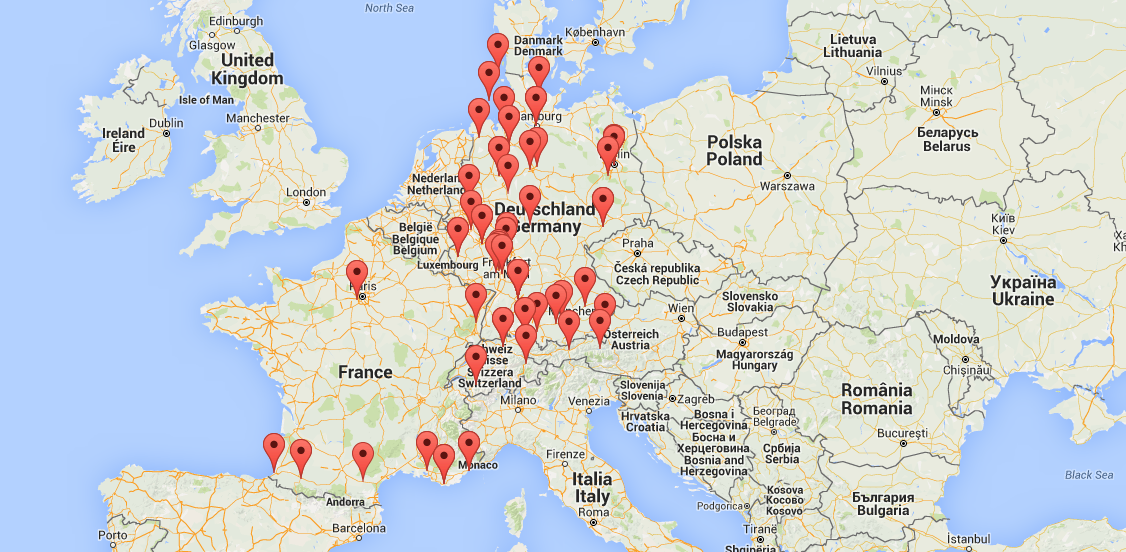Those for whom regular vehicle sharing, be it as drivers or passengers, has always been a welcome option, may be aiming to raise their transport variety to a faster, higher and more sophisticated level. The services of Wingly, a French-German flight sharing start-up, could be an interesting pick. Their website offers private pilots and passengers a common marketplace based on a simple concept: pilots publish their scheduled flights, potential clients choose their destinations and directly place their bookings. At present, connections are offered from and to locations in France, Germany, Austria and Switzerland. Scenic flights (“Fly Arounds“) and balloon rides are part of the programme as well.
In Europe, more than 300,000 persons are holding a private pilot’s licence, albeit maintaining it proves a costly affair for them that sometimes requires creative measures. Sharing expenses by taking a travelling companion on board seems the most obvious and is widely practiced.
Since Wingly’s French mediating base started off mid 2015, some 900 pilots have enrolled. The brand-new branch in Germany drew another 200 pilot’s registrations within the first two weeks. With well over 200 passenger bookings in total, the young company’s business model has quickly gained momentum. Cancellations were few – and mostly due to unfavourable weather conditions. No-shows by either a pilot or a passenger have not occurred as of yet, says Wingly.

Wingly co-founders Lars Klein, Bertrand Joab-Cornu and Emeric de Waziers are experts in their fields. ©Wingly
Regulations by the European Aviation Safety Agency EASA demand of pilots to complete 12 flight hours and at least one training flight with an instructor within 24 months.
Is flight sharing legal?
In Europe, private pilots are allowed to share flights and the cost thereof, as long as the trips are undertaken upon their own initiative and not by explicit order placed by a paying client. Expenses have to be divided equally per capita by number of passengers travelling.

The destination map for routes presently serviced by Wingly’s flight sharings. ©Wingly
Via the „Step-by-step guide“ one can find a suitable flight, request a seat with the pilot, wait for his confirmation, pay via Wingly and be at the arranged meeting point well on time.
Once on board, the pilot’s instructions have to be obeyed.
Should a desired connection not be listed, clients can enter the respective cities for departure and arrival into the Wingly system to create a „flight alert“.
Updates will inform on new flights available.
Insurance and payment for shared flights
Third-party liability insurance policies held by private pilots cover passengers once they have boarded. For this to become effective, the transaction for the journey has to be completed (and paid) with Wingly. Payment works in advance via credit card, as is common practice for online bookings. The money will be refunded should the flight be annulled.
How about luggage?
As specific weight and luggage limits for all flights are set by the individual pilot, prospective passengers are required to submit their body weight as well.
Verification, validation and rating
Passengers and pilots have to identify themselves by passport, address and phone number. This forms a solid foundation of mutual trust and raises the safety standard. Moreover, pilots have to verify their flight licenses, flight logs and number of flight hours. A rating system enables users to assess a pilot’s performance with grades one to five. Especially trustworthy pilots are thus easily identified.
Header image: A night flight with Wingly. ©Wingly.
